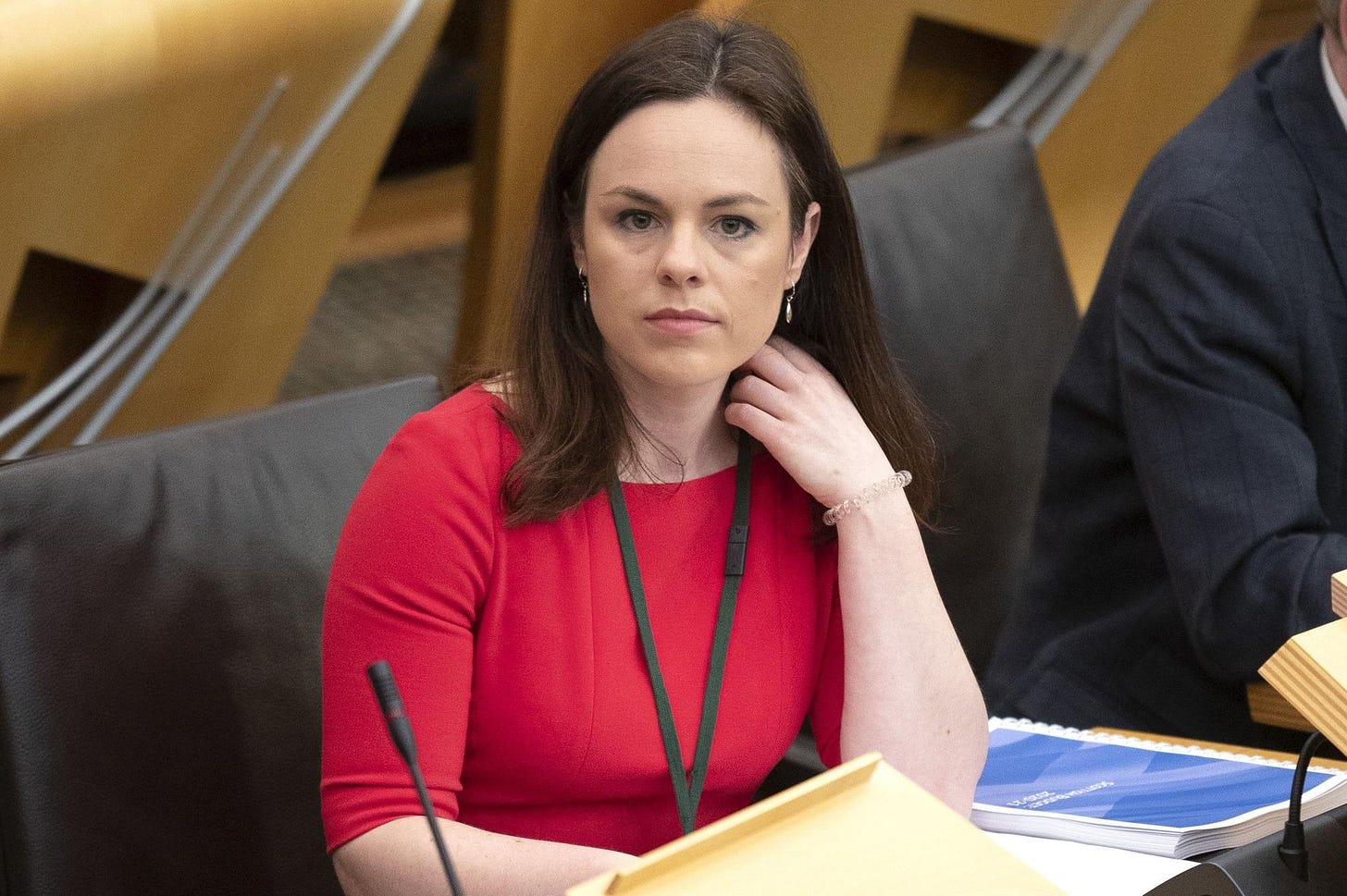The Meaning of Kate Forbes
Christian excitement about her SNP campaign was profoundly misplaced
What does Kate Forbes mean?
Or, perhaps, what did Kate Forbes mean? This week, Forbes narrowly lost out to Humza Yousaf in the SNP leadership contest, with 48% of the final round vote to Yousaf’s 52%. Humza offered Forbes the post of Secretary for Rural Affairs in his new government (the definition of being “farmed out”, surely), but Forbes unsurprisingly declined, returning to the backbenches.
Forbes’ leadership campaign was something to behold these last couple of months. As a member of the thoroughly Reformed and evangelical Free Church of Scotland, which holds biblical and traditional views on marriage and sexuality, Forbes came under sharp scrutiny, attracting widespread admiration from Christians for how she responded in interviews. She admitted that she would have voted against so-called gay marriage, cannily comparing herself to Angela Merkel. Later, she held her own when pressed about childrearing outside of marriage.
All and sundry were surprised that Forbes did so well in the contest. She consistently polled as well if not better than Yusuf among the general public, and her strong show in the final vote was down to support among grassroots SNP members (Humza being the preference of the party hierarchy). She seemed to have made a self-conscious decision not to be like Tim Farron, who can only be described as having been woefully underprepared for the realities of being a Christian in politics during his stint as Lib Dem leader from 2015-2017. Forbes didn’t exactly come out swinging, but her relatively up-front manner served her well.
Why the surprise at Forbes’ popularity? When Tim Farron resigned as Lib Dem leader in 2017, he stated that, “To be a leader, particularly of a progressive liberal party in 2017 and to live as a committed Christian and to hold faithful to the Bible's teaching has felt impossible for me.” Farron was hounded out of his role by repeated, specific questions regarding his beliefs about gay sex. He resigned after stating in one interview that he did not believe gay sex to be a sin—a statement he has since said was “not right” and which he regrets.
Farron’s resignation seemed to spell out explicitly what some had thought all throughout his leadership: that there is no place for Bible believing Christians in British politics, certainly not as leaders. Since then, the cultural tides of British life have only turned more and more against Christians, especially on issues of sexuality and gender. People have become thoroughly aware (as I said when I announced The New Albion) that Christians now live in “the Negative World”.
Forbes, then, was a curveball. As her campaign gained momentum, evangelical Christians across the UK began to wonder if there may be a new dawn for us in politics. Although the time wasn't right for Farron in 2017, perhaps since then enough people have tired of the vicious excesses of identity politics and wokeness, especially on trans issues, and are once again willing to tolerate people who won’t wholeheartedly salute the rainbow flag. Perhaps the Negative World is already over.
This optimism was, however, profoundly mistaken.




